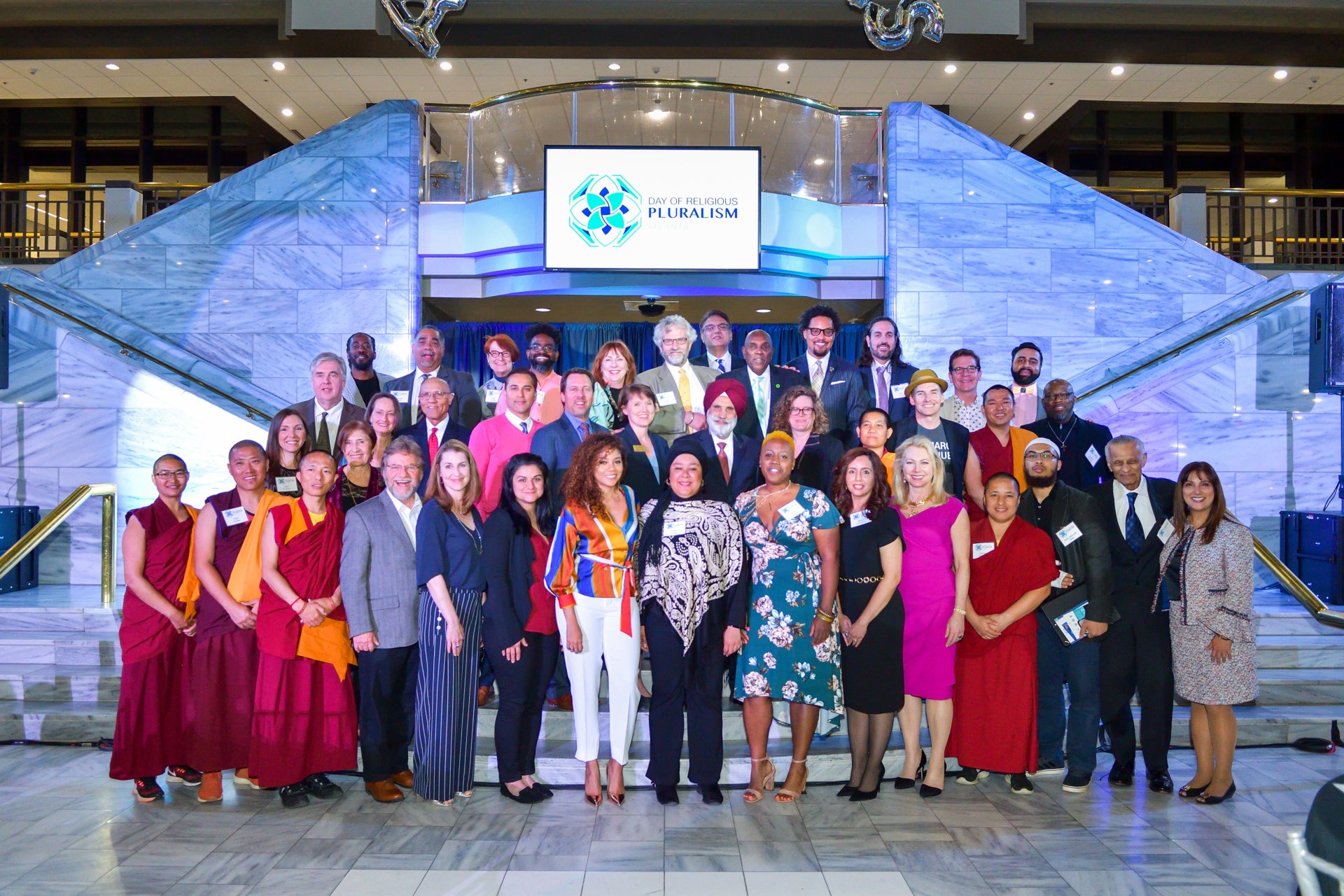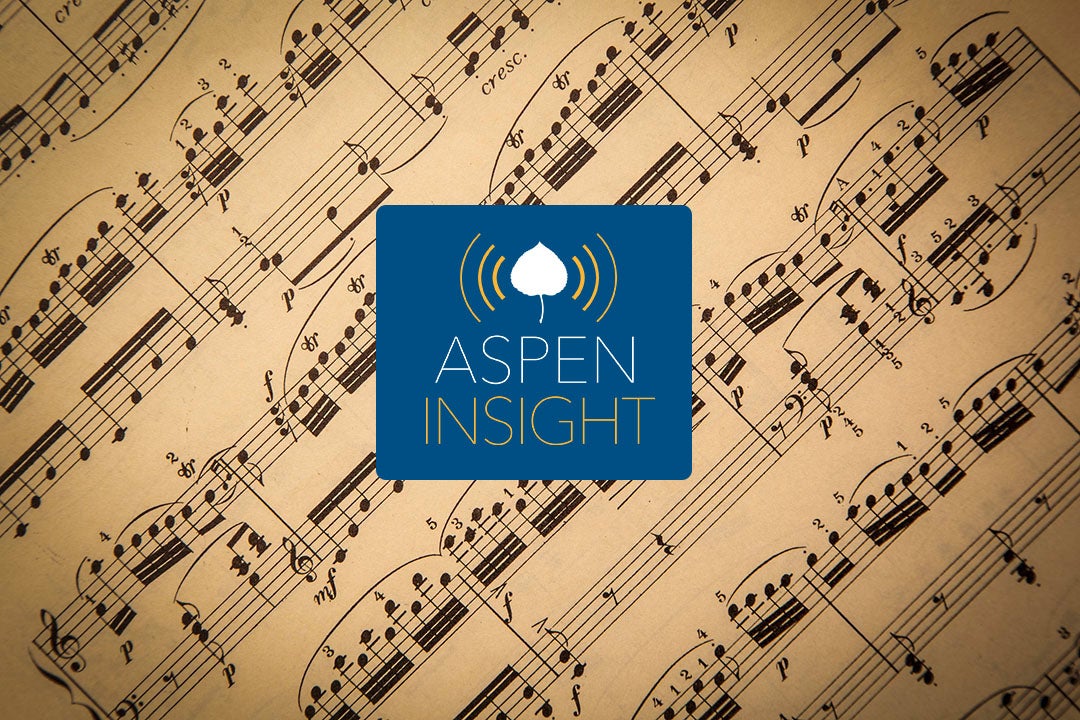There have been too many instances of bias-motivated violence in recent years: parishioners murdered at their own bible study meeting, holiday shoppers run over at a market, young people executed by a neighbor who didn’t care for their faith. Incidents like these, says Joumana Silyan-Saba, who has helped the city of Los Angeles organize its Day of Religious Pluralism since 2015, were moments of pain, but also “moments where we decide what defines us.” It was incidents like those that were the impetus for the city of Los Angeles to partner officially with its thriving interfaith scene to establish a unified stance to promote social cohesion and “celebrate our unity and shared compassion for our fellow human beings by honoring and respecting diverse beliefs and practices.” For the last four years, the annual Day of Religious Pluralism has drawn diverse participants, established and solidified partnerships across boundaries of faith and no faith, and galvanized local leaders to engage each other in practical efforts to strengthen the greater community using common virtues.
The resolution and events showcase the kind of efforts promoting religious pluralism that the Inclusive America Project has championed for years. Believing that few issues today are as vital for American civil society as maintaining our national commitment to religious pluralism, our focus includes developing relationships between religiously affiliated organizations and government agencies. We aim to highlight and disseminate proven long-term strategies to increase respect for diverse religious identities in the public sphere, foster positive interfaith interactions, and form productive partnerships among people of different beliefs to advance the common good. This is why we are thrilled to report that the expansive vision of the city and interfaith community of Los Angeles has been so successful.
The organizers in LA wanted the event to become a template for other cities to establish their own unique Day of Religious Pluralism. There is even a toolkit available. Four years after the inaugural event in LA, the city and faith communities of Atlanta designed their own inaugural Day of Religious Pluralism, which took place on April 4. Farida Nurani, a volunteer of the Ismaili Muslim community and part of the Aga Khan Council for the Southeastern United States, was one of the organizers. Inspired by LA’s resolution and events, she says her Ismaili community reached out to other local faith leaders and to the mayor’s office to tremendous response. Like LA, city and faith leaders collaborated to draft and pass a proclamation to “affirm our shared, cherished values of dignity, unity, respect and compassion for our fellow human beings” and establish their inaugural event. As the planners in LA had hoped, Atlanta then took the idea and made it their own. In formulating their event, they drew also on the articulation of pluralism at the Global Centre for Pluralism.
With a theme of Beauty in Harmony, Atlanta’s event was centered on art as a language that can cross all barriers. Curated art exhibits as well as poetic and musical performances showcased faith-inspired beauty in harmony with diverse compatriots. It was a tangible representation of pluralism at its best: an intentional meeting of commitments rather than a surface-level assimilation of beliefs. The evening ended with a Civic Dinner that incluced a facilitated conversation on religious pluralism. Organizers are already planning for next year’s event.

Artists, Performers, and Host Committee members representing diverse faith and civic communities, participated in Atlanta’s inaugural Day of Religious Pluralism: Beauty in Harmony: Artists, Performers, and Host Committee members representing diverse faith and civic communities, participated in Atlanta’s inaugural Day of Religious Pluralism: Beauty in Harmony. Aga Khan Council | Naz Samji
Events in both cities have spurred tangible outcomes that have bettered society at large. In LA, the city’s collaboration with its faith partners created a kind of institutional frame where non-governmental actors – faith leaders, community members, non-profit leaders – could connect. From there, collaborations developed organically around numerous issues including homelessness and emergency management. In Atlanta, the Civic Dinner template for conversations on religious pluralism had never existed; now the organization is expanding what it developed for the Atlanta event and plans to add religious pluralism to its regularly offered topics.
Although organizers in both cities are proud of the work done and thrilled with the outcome, they stress that success depended on strong collaboration between civic and civil partners who developed real relationships with each other. These events were not organized and dictated by any one organization with the hope that everyone else would get onboard. Instead, resolutions and events were planned on a consensus basis and documents were developed iteratively with participation from a diverse group of faith leaders. That collaborative process set the stage for real buy-in from the communities.
Organizers in both cities also stressed the importance of the public ceremonial aspect of civic involvement. The symbolism of the public ceremony around formal proclamations and resolutions recognized collective representation of city, community, and country. These documents were symbolic of us as citizens, all of us, acting as one to stand with and protect each other not in spite, but because of, our differences.
In addition to the toolkit mentioned above, the Inclusive America Project can offer further resources to those interested in this work. Developing a Day of Religious Pluralism is a tangible and generative way for civic and faith leaders to address the rising tides of hate. Such work, done in good faith through difficult moments, is not only a practical approach to building local community resilience, it is also a very real way to build a joyful human community. As Joumana Silyan-Saba, oversight committee member for the Day of Religious Pluralism in LA said, “It is a shining light in a very dark time.”


